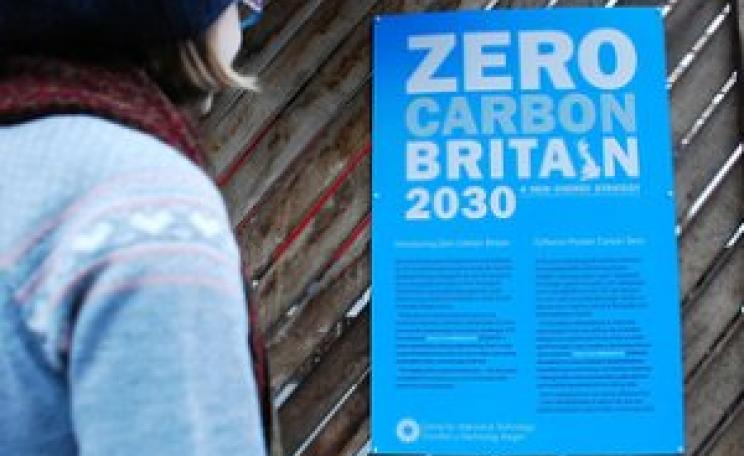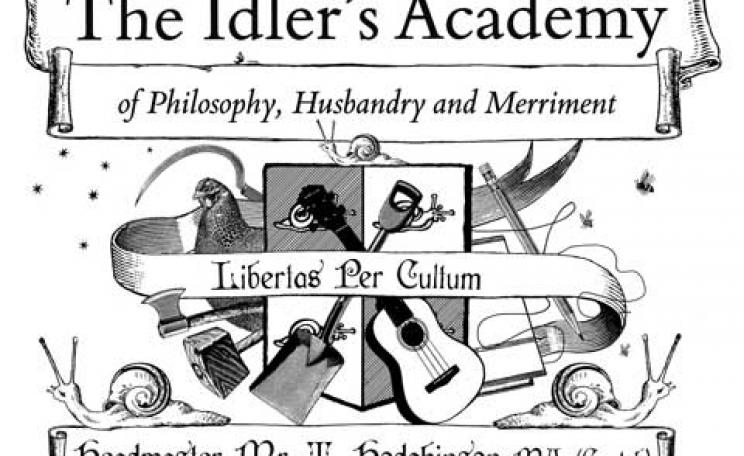I've often said that far more sensible than a 'make poverty history' campaign would be a 'make wealth history' campaign. It is, after all, the wealthy people who do all the damage. The less money you earn, the fewer resources you use up. The wandering Saddhu with a begging bowl is profoundly eco-friendly, while your Bonos and Geldofs, not to mention your yacht-owning oligarchs, consume enormous amounts of oil. City boys drive around in big cars and snort cocaine, neither of which activities is very planet-saving, and just imagine Tony Blair’s carbon footprint.
I am not for a second recomemending a worldwide 'wealth relief' policy, where we will steal money from the rich and give it to the poor, though that idea certainly has its attractions. We also must remember, with Dr Johnson, that there is nothing desirable in being really poor: 'Slow rises Worth, by poverty deprest,' as he observed in his poem London, published in 1738.
However, it makes perfect rational sense to argue that the planet could be healed if we all lived more modestly. Trying to make everyone rich, and in a sense Westernising the world by commodifying everything, will have the effect of increasing demand for oil, when everyone knows that the sensible thing is to reduce demand.
Fred Pearce of the New Scientist has expressed this idea in terms of carbon emissions:
The world’s richest half billion people – that’s about seven per cent of the global population – are responsible for fifty per cent of the world’s emissions. Meanwhile, the poorest fifty per cent are responsible for just seven per cent of emissions. One American or European is more often than not responsible for more emissions than an entire village of Africans.
It’s pretty obvious that Western lifestyles which rely on gigantic amounts of electricity use up far more resources than a subsistence-based life. A little more poverty would be a good thing. The recession itself, in fact, has already slowed down carbon emissions. The International Energy Agency says in a recent report that emissions are likely to fall by 3 per cent in 2009 as a direct result of the recession.
Our addiction to computers is one of the problems. It is curious that the computer has become an almost indispensable piece of equipment, even for the most determined downshifter. Today’s Thoreau might be able to turn his back on many elements of industrial capitalism, but he will not do without his laptop and his Google connection. A seriously green campaigner would give up his or her mobile phone and computer because both are made of plastic and are destined to end up in the rubbish bin.
We did actually manage quite well for many millennia without computers or mobile phones. Shakespeare had no Blackberry; Aristotle managed without an i-Phone. Christianity spread round the globe without blogs. Christ preached his sermon on the mount without the need of a PA system and Powerpoint presentation. All of our technology is completely unnecessary to a happy life.
All this is why, I think, that we would do well to return to some sort of Sabbath observance. We should have one day where we turn off the computers and the machines and let them rest. For ourselves, we should eat and walk and drink. We should stay at home. If we lived poor for just one day of the week, we would instantly reduce pollution by a seventh. We would rediscover the simple pleasures, such as cards, chess, backgammon, draughts, talking, dancing and playing music. We would create our own pleasures rather than parting with our hard-earned cash to receive entertainments created by other people. Can we live as happy peasants, creative, fulfilled, in touch with the land? I see Sundays along the lines of the following extract from a 1949 essay called 'Portrait of a Parish', written by Essex farmer’s wife Ethelind Fearon:
We do not suffer ourselves to be amused, sitting inert before a screen or watching dogs and horses and busy men with wind-filled balls running for our entertainment. If there is running to be done we will do it. We make our own amusements, our own clothes from our own sheep’s wool dyed from our own walnut trees, our own cakes and jams and toys and rugs, gloves, sheepskin slippers, cricket bats, bricks, baskets, beehives, and our own beautiful farm wagons from local trees.
Such a life is not an absurd fantasy, a silly romantic dream. It is a perfectly sensible way of doing things. When you do not have spare money for entertainment, you start to create your own, and this is far more fulfulling that the bought-in kind. And as a final thought, can I recommend John-Paul Flintoff’s excellent new book, Through the Eye of a Needle, which is part spiritual pilgrimage and part the account of one man learning how to make his own clothes.
Tom Hodgkinson is editor the Idler magazine
| READ MORE... | |
 |
GREEN LIVING Second skin: why wearing nettles is the next big thing John-Paul Flintoff journeys into a world of sartorial bliss, kitting himself out in eco-friendly fabrics of the future |
 |
GREEN LIVING Basket weaving for the 21st Century It's an ancient craft using renewable resources with sustainable techniques. But that doesn't mean it can't be damned sexy, as Mary Butcher shows |
 |
GREEN LIVING Grow your own drugs: an interview with James Wong Plants can be much more than a pretty backdrop to life. Read this and you'll never look at a garden in the same way again... |
 |
COMMENT The next Industrial Revolution will be people-powered Switching to decentralised renewable energy doesn't just mean a new source of power - it means a revolution that will be both social and economic |
 |
COMMENT Being green is cheap and easy He's.... wicked and he's lazy. But he's also surprisingly green. The self-proclaimed Idler on saving the planet from your armchair... |






